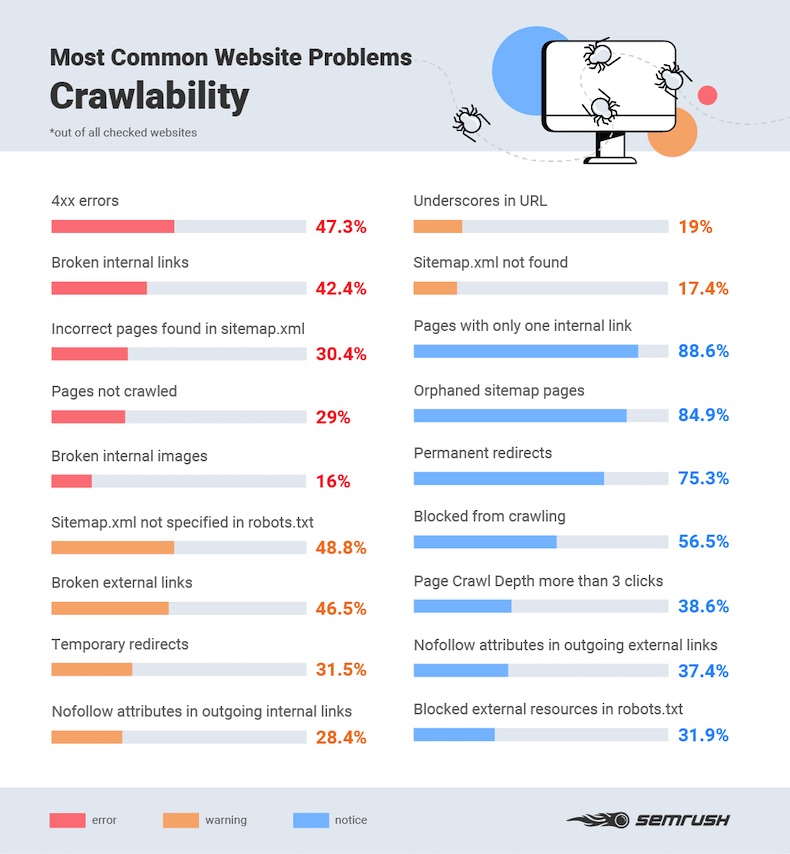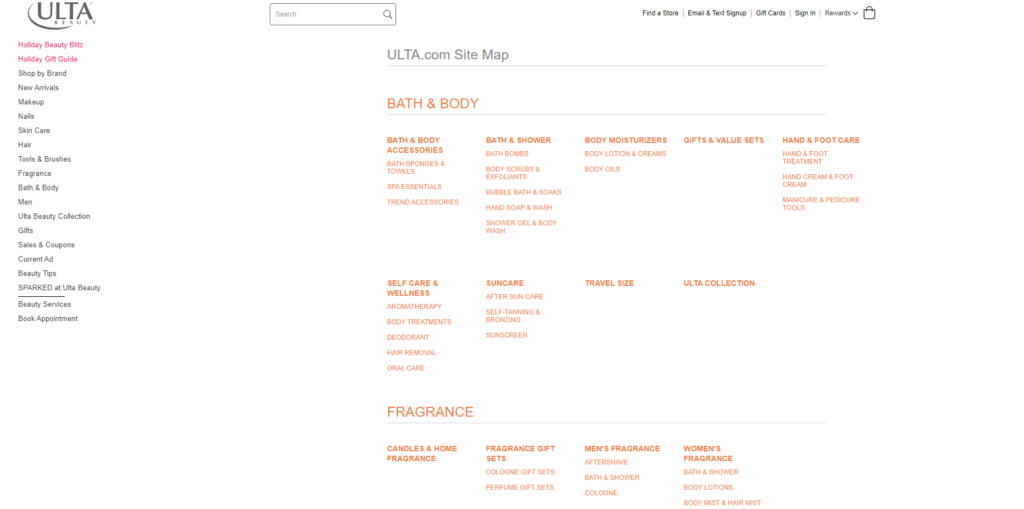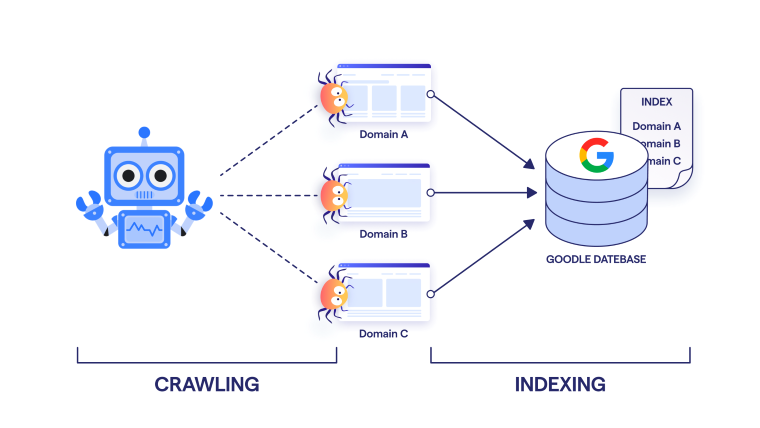Unlock the mystery of indexability and discover how it impacts your website’s visibility and ranking on search engines.

Image courtesy of via DALL-E 3
Table of Contents
Introduction to Indexability
Have you ever wondered how Google and other search engines find all the information on the internet? Well, it all comes down to a concept called indexability. Indexability is like a giant map that helps search engines navigate through the vast world of websites to find what you’re looking for. In this section, we’ll explore what indexability is, why it’s crucial for websites, and how it impacts the way we discover information online.
What is Indexability?
Indexability is a fancy way of saying that a website can be found and understood by search engines like Google. When a website is indexable, it means that search engines can read its content, store information about it, and show it in search results when people look for specific topics. Imagine it like a library catalog that helps you find your favorite book among thousands of others.
Why is Indexability Important?
Indexability is vital for websites because it allows people to find the information they need quickly and easily. Think of it as having all the answers to your questions neatly organized and readily available whenever you search for something online. Without indexability, websites would be like hidden treasures buried under a pile of sand, making it challenging for us to discover valuable content on the web.
How Search Engines Work
Search engines like Google and Bing are like helpful assistants that help us find the information we need on the vast internet. But have you ever wondered how these search engines actually work behind the scenes? Let’s dive into the basics of how search engines operate.
Crawling Explained
First, search engines use special software called bots or spiders to explore the internet. These bots visit different websites and follow links from one page to another, just like you navigating through a book by flipping pages. This process is called crawling. Think of it as search engines scanning the entire internet to find and understand what’s out there.
What is Indexing?
Once the bots finish crawling a website, they collect and organize the information they find into a massive database. This organized database is called an index. So, when you search for something on Google, it’s not searching the live web; it’s actually looking through this index of information gathered by crawling.
How a Website Gets Indexed
One essential step in getting your website noticed by search engines is to create high-quality content. This means writing informative and valuable articles, blog posts, or product descriptions that are relevant to your target audience. When search engine bots crawl your site, they look for content that is useful and engaging for users. So, make sure to focus on creating content that answers questions, solves problems, and provides insights that your visitors will find valuable.

Image courtesy of www.marketingprofs.com via Google Images
Using Relevant Keywords
Another crucial aspect of getting your website indexed is using relevant keywords throughout your content. Keywords are specific words or phrases that people use when searching for information online. By incorporating these keywords naturally into your content, you are helping search engines understand what your website is about and who it is intended for. This, in turn, increases the chances of your site being displayed in search results when someone searches for those specific keywords.
The Role of Sitemaps
In the world of websites and search engines, sitemaps play a vital role in ensuring that your website gets noticed and indexed properly. But what exactly are sitemaps and how do they assist in this process? Let’s delve deeper into the significance of sitemaps for website indexing.
What is a Sitemap?
A sitemap is like a map of your website that helps search engines navigate and understand its structure. It is a file containing a list of all the pages on your website, organized in a hierarchical manner. Sitemaps provide search engines with important information about your site, such as when a page was last updated, how often it changes, and its importance relative to other pages on the site.
How to Create a Sitemap
Creating a sitemap for your website is easier than you might think. There are several tools available online that can help you generate a sitemap automatically based on your website’s structure. These tools will create an XML sitemap, which is a format that search engines like Google can easily read and interpret.
Submitting a Sitemap to Search Engines
Once you have created a sitemap for your website, the next step is to submit it to search engines like Google. By submitting your sitemap, you are essentially telling search engines about the pages on your site that you want them to crawl and index. This process can help ensure that all your important pages are included in search engine results.
Technical Aspects of Indexability
Meta tags are snippets of code that provide information about a webpage but are not visible on the actual page. They play a crucial role in how search engines index and display content. Meta tags can include meta titles, meta descriptions, and meta keywords that help search engines understand the content of a webpage.

Image courtesy of www.marketingprofs.com via Google Images
Using Robots.txt
A robots.txt file is a simple text file located in the root directory of a website that tells search engine bots which pages and files they can and cannot access. By using robots.txt, website owners can control what content search engines index and display in search results. It is essential to configure robots.txt correctly to ensure that only relevant and valuable content gets indexed.
Common Indexability Issues
One common issue that websites face when it comes to indexability is crawling errors. Crawling errors occur when search engine bots have trouble accessing and navigating through a website. This can happen due to broken links, server errors, or robots.txt directives blocking certain pages from being crawled. To fix crawling errors, website owners need to identify the specific errors using tools like Google Search Console and address them promptly to ensure all pages are accessible to search engine bots.
Duplicate Content
Another significant issue that impacts indexability is duplicate content. Duplicate content refers to identical or very similar content appearing on multiple pages of a website or across different websites. Search engines may struggle to determine which version of the content to index, leading to potential indexing issues. To avoid this problem, website owners should ensure each page has unique and valuable content. Implementing canonical tags can also help search engines understand the preferred version of a page to index, reducing the risk of duplicate content issues.
Improving Indexability
One crucial way to enhance the indexability of your website is to regularly update its content. When you add new information, search engines like Google are more likely to crawl and index your site. Fresh and engaging content can attract both users and search engine bots, improving your site’s visibility.

Image courtesy of www.webfx.com via Google Images
Optimize for Mobile Devices
Another vital tip to boost indexability is to ensure your website is optimized for mobile devices. With more people using smartphones and tablets to browse the internet, having a mobile-friendly site is essential. Search engines prioritize mobile-responsive websites, making them more likely to be indexed and ranked higher in search results.
Monitoring Indexability
Google Search Console is a helpful tool that allows website owners to monitor and manage how their site appears in Google search results. It provides valuable insights into indexing issues and helps identify areas for improvement. By regularly checking Google Search Console, you can see which pages on your website are indexed and if there are any errors that need to be addressed. This tool can also show you the keywords that are driving traffic to your site and how your content is performing in search results.
Other SEO Tools
In addition to Google Search Console, there are other SEO tools available that can assist in monitoring indexability. Tools like Screaming Frog, SEMrush, and Ahrefs provide in-depth analysis of your website’s performance in search results. They can help identify indexability issues, track keyword rankings, and analyze the backlink profile of your site. By utilizing these tools, you can gain a comprehensive understanding of how your website is being indexed and take proactive steps to improve its performance.
Conclusion
In conclusion, indexability plays a crucial role in ensuring that websites can be easily found and accessed by users on search engines like Google. By understanding what indexability is and why it is important, website owners and creators can take steps to improve their site’s visibility and reach a wider audience.

Image courtesy of linkflow.ai via Google Images
Recap of Key Points
Throughout this article, we have discussed the meaning of indexability and the processes involved in getting a website indexed by search engines. We have covered the importance of creating quality content, using relevant keywords, and implementing technical aspects like meta tags and robots.txt files. Additionally, we have addressed common indexability issues and provided tips on how to improve and monitor a website’s indexability.
Importance of Indexability in SEO
Indexability is critical for the success of any website as it determines how easily users can find the content they are looking for. Without proper indexability, a website may remain hidden from search engine results, limiting its visibility and traffic. By prioritizing indexability and following best practices, website owners can enhance their SEO efforts and attract more visitors to their site.
Frequently Asked Questions (FAQs)
What Happens If My Website is Not Indexed?
If your website is not indexed, it means search engines like Google or Bing are not aware of its existence. As a result, when people search for information related to your website, it won’t show up in search results. This can severely limit the visibility of your website and make it challenging for users to find you online.
How Long Does It Take for a Website to Get Indexed?
The time it takes for a website to get indexed can vary depending on several factors. In general, search engines like Google constantly crawl the web to discover and index new content. However, it can take anywhere from a few days to a few weeks for your website to appear in search results after it has been indexed. It is essential to create quality content, use relevant keywords, and submit a sitemap to expedite the indexing process.







